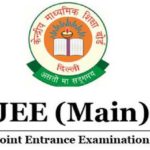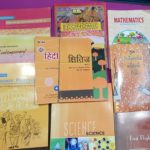You must look at the NEET syllabus before you plan to join the battleground of a highly competitive exam. A study plan for the NEET test is useless unless you have a thorough understanding of the exam’s syllabus. Serious NEET candidates should also be aware of the major themes that have been questioned in the exam on a regular basis. Understand the exam syllabus to determine which topics to begin your preparation with.
Physics, Chemistry, and Biology are the three primary disciplines in the NEET Exam Syllabus. The NEET 2022 syllabus covers fundamental and advanced concepts from Physics, Chemistry, and Biology in Classes 11 and 12. The NEET syllabus is created by the National Testing Agency (NTA) after careful study of the state boards’ 10+2 curriculum.
The next thing you should be aware of is the examination pattern. For your convenience it is given below:
| Subject | Questions | Marks |
| Physics | 45 | 180 |
| Chemistry | 45 | 180 |
| Botany | 45 | 180 |
| Zoology | 45 | 180 |
| Total | 180 | 720 |
Refer to the Neet syllabus given below
Guidelines for preparing for the NEET in Physics:
Here are some general tips on how to prepare for the NEET (Physics) exam.
- Begin with understanding basic arithmetic concepts such as differentiation, which is essential to answer a variety of issues.
- In Physics, instead of memorizing formulas, try to deduce and comprehend how they function.
- In Physics, problem-solving is essential for success. Don’t just read the answers; actually, solve them.
- Concentrate your efforts on the most critical chapters while keeping previous trends in mind.
- Always keep short notes on anything you’ve learned.
Make a separate book to keep track of essential topics and equations from each chapter. Use the revision book to answer as many questions as possible from the mock papers. Some of the important chapters are:
- Dimensional analysis
- Semiconductors
- Laws of Motion
- Kinematics
- Work, Energy, and Power
- Heat & Thermodynamics
- Rotational Motion
- Modern Physics
- Current Electricity & Magnetism
- Electrostatics
- Oscillation & Waves
- Electromagnetic Induction & Alternating Currents
- Optics
Guidelines for preparing for NEET in Biology:
Here are some general tips on how to prepare for the NEET (Biology) exam.
- The most important thing to learn in Biology is everything.
- One of the requirements for success is proper book reading followed by regular revision for biology
- After learning a topic, practice questions to assess your understanding. Pay specific attention to diagrams, as most exam questions are related to one or more diagrams.
- Make a note of anything important you read or write it down for rapid revision before testing.
- One of the most important criteria is to read NCERT books because questions are taken directly from the text.
Important Chapters:
- Diversity in Living World
- Structural Organization in Animals and Plants
- Cell Structure and Functions
- Plant Physiology and Human Physiology
- Reproduction
- Genetics and Evolution
- Human Welfare
- Biotechnology and its Applications
- Ecology and Environment.
NCERT textbooks are essential for passing NEET’s Biology component. In addition, compared to Chemistry and Physics, Biology receives a 50% weighting in the NEET question paper. As a result, in order to attempt questions in the exam, you must be very clear with various questions. This can be accomplished by reviewing the subject on a regular basis and taking practice examinations. In Biology, use mnemonics to help you remember facts. Biology can cover a wide range of topics.
Guidelines for preparing for the NEET in Chemistry:
- The following are some general guidelines for NEET (Chemistry) preparation.
- While studying a topic, students should do a thorough review of the same topic using NCERT books.
- To memorize some of the topics, such as the periodic table, use tricks or create your own.
- Always remember the exceptions, as they are the ones that are frequently asked in tests.
- Learn the reaction mechanism in such a way that you can predict the outcome of any reaction.
- It’s always a good idea to answer questions once you’ve finished a topic.
- Practice and answer as many questions as possible in Organic Chemistry MCQs to learn the fundamental concepts such as IUPAC, ISOMERISM, GOC, and reaction mechanisms.
- NCERT is more than adequate for inorganic chemistry. Make a comprehensive revision of each and every concept.
- Solve equations, review all conceptual ideas, and practice a lot of MCQs in physical chemistry.
Important Chapters:
- Thermodynamics
- Equilibrium
- Hydrocarbons
- Carbonyl Compounds
- Chemical bonding
- Mole Concept
- Electrochemistry
- Coordination Compounds.
The NCERT textbook is ideal for chemistry because it is well-structured and allows for a thorough comprehension of all themes. Aim to complete all of the questions in the textbook before moving on to reference books for extra practice. Physical Chemistry is all about understanding concepts and putting them into practice by answering as many MCQs as possible. Inorganic chemistry is more concerned with facts than with concepts. This phase necessitates a significant amount of conceptual understanding on their part. Organic chemistry is difficult, and you must master its fundamentals.
Break the revision process down into little chunks.
When it comes to studying for significant admission tests like NEET, concentration is crucial. Candidates should break down their revision sessions into small chains based on their level of concentration and be urged to take some small pauses between them. According to American Physiologist, taking a break between NEET review hours not only relaxes candidates’ minds but also improves their focus strength for revision.
You become flawless via practice!
Aspirants must also practice the concept on a daily basis in order to revise their strategy for NEET. Daily practice of questions aids hopefuls in managing their time for the NEET entrance exam. Candidates can quickly comprehend the NEET test structure, question-level, and a variety of other topics. Candidates can use mock examinations, join a test series of medical entrance tests, or practice from past years’ question papers or sample papers to learn more about the NEET questions.
All NEET candidates should study NCERT because it would assist them to prepare for their board exams. In Biology and Chemistry, direct NCERT questions have been asked on a regular basis. During their preparation, one must unquestionably read NCERT books religiously.













